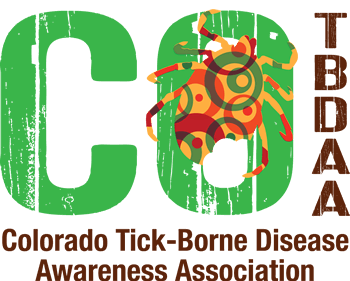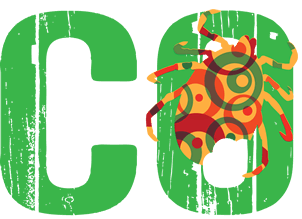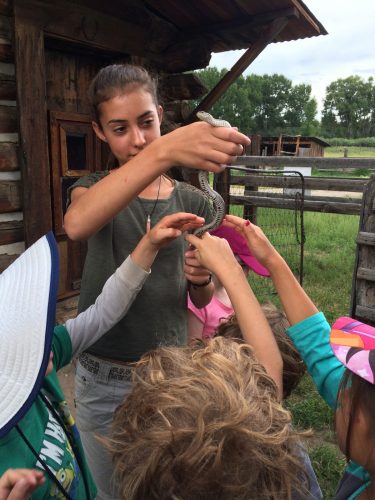
For Educators
Resources for Educators
Tick Safety for Outdoor Education
Outdoor education is so important to the development of our children. Part of this education is safety. Whether educating children in the outdoors or within the classroom, it is important to teach awareness of ticks and the potential impacts of tick-borne diseases. Tick bites may transmit diseases that can make you or your students sick. Some of these infections can be very serious if not detected and treated promptly and properly.
Prevention measures should always be taken when working with children in outdoor education programs or when attending field trips where they may encounter ticks or biting insects.
Prevention Resources
- Colorado Tick Talks: COTBDAA offers kid friendly tick awareness and education programs as well as providing educational materials to take home through our Colorado Tick Talks program. You may also download and print prevention educational handouts and posters for your students, families and classrooms on our printable resources section! Please contact us if you would like a program for your school or outdoor education program.
In addition, there are several classroom resources available to educators that wish to provide their own simple instruction regarding tick awareness and safety in their classrooms:
- “Don’t Let the Ticks Bite” Tool Kit, This toolkit from the California Department of Health contains tick bite prevention information for children and is suitable for use in the classroom, with scouting and other youth groups, or at home. Visit the California Department of Health for these resources.
- The TickEncounter Resource Center also provides TickSmart Learning Kits for the classroom. Children learn where to look and what to look for.
- BLAST-Tick-Borne Disease Prevention Program offers educational materials free for the community’s use. Teachers, medical professionals and community groups are encouraged to learn about tick-borne disease prevention and early symptoms by viewing PowerPoint programs and literature. Visit the Ridgefield Health Department for resources.
- LymeTV’s Tick JEDI™ Health Education Program offers schools, camps, & youth organizations a free health education course about tick bite prevention. LymeTV’s cartoon engages the audience by allowing them to choose-their-own-path. The program is browser-based & is easy to access from any device with an Internet connection.At the end of the program, students will be able to identify tick habitats, explain protective clothing, practice proper daily prevention methods, & know what to do if they get bit by a tick. Watch the trailer & register now.
Lyme Disease in Colorado Students
Though Lyme is not widely believed to occur in Colorado, many children and families in Colorado have been impacted by this disease. These children and families are faced with unique challenges and stresses that are not often understood, even by close family and friends. Fluctuating symptoms, difficulty with access to medical care, financial and emotional strain, especially if there is also a parent in the household that is infected.
One of the most challenging things about pediatric Lyme disease is explaining it to teachers or coaches – children’s symptoms are so varied, and can change radically from day to day. Sometimes symptoms of tick-borne infections can mimic OCD, ADD, learning disabilities, or mood disorders.
Lyme and other tick-borne diseases can have a tremendous impact on a child’s ability to learn, attend class or other school or recreational programs. Some children may require accommodations through a 504 plan or Individual Educational Plan (IEP) to assure educational access and success for their children. When children are very ill they may require online or homeschooling options that allow them to participate when they are able. Recognition and understanding of Lyme and other tick-borne diseases and the impacts on education of children in the classroom is crucial to student success. Educators working with children that have been impacted by both acute and chronic infections will find the following resources helpful in their understanding of these diseases so that they may best assist their students and their parents.
Lyme: School and Family Resources
Sandy Berenbaum, LCSW, BCD, Lyme-Literate Psychotherapist
“Lyme disease can be a debilitating illness having a profound effect on interpersonal relationships and a patient’s ability to function at home, in school, and in the workplace. Making matters worse, most chronic Lyme patients suffer from delayed or inaccurate diagnoses prior to finding a doctor who will treat their illness effectively. Some patients have spent months or even years trying different treatments that don’t work, since their diagnosis was, in fact, wrong. Patients often feel isolated and trapped when those around them do not understand the complexity of their illness and what they are experiencing.” Sandy provides resources for parents, educators and children dealing with these complexities of Lyme in the family and the schools. Visit lymefamilies.com for more information and to download the valuable resources below:
- BOUNDARIES 101 FOR LYME PATIENTS: When chronic Lyme disease patients are diagnosed, they enter a different world. The lack of understanding of the complexities of this illness outside of the Lyme community makes it important for patients and families with Lyme disease to establish boundaries, to set limits with those around them who do not understand what they are going through, to protect their time and energy, and to get the support they need. Here I discuss the boundary issues, and offer strategy for dealing with these issues when they come up.
- KIDS AND LYME DISEASE: HOW IT AFFECTS THEIR LEARNING: Lyme disease can have a profound affect on a child’s ability to learn. This article discusses the complexity of the problems that children with chronic Lyme face in the school environment and what can be done to support them.
- TICK-BORNE DISEASE IN CHILDREN AND ADOLESCENTS: A MEDICAL ILLNESS/A MULTIDISCIPLINARY “CURE”: Lyme is a complex illness that, when chronic, often effects the brain, causing impairments in mood, cognition and attention. An integrated, or team approach to treating Lyme patients can provide help, support, and solutions to problems generated by the illness, beyond the medical treatment itself.
- REFLECTIONS ON LYME DISEASE IN THE FAMILY: Lyme disease in a child or adolescent can have a profound effect on a family. This article touches on some of the issues that face parents and offers parenting strategies to help ease the journey.
- LYME DISEASE SCREENING PROTOCOL: This is a simple screening tool designed to help mental health practitioners determine whether Lyme disease could be an underlying cause of presenting problems among children or adolescents. My hope is that by using this tool, more cases of Lyme disease may be recognized by mental health practitioners, resulting in earlier medical diagnosis and the need for less complex and lengthy treatment. If a tick-borne illness is present, comprehensive medical treatment can lead to more successful resolution of mental health problems, as well.
- IDENTIFYING LYME DISEASE IN THE SCHOOLS: Education regarding Lyme disease is an important service we can provide to our schools. This handout can help teachers, nurses and guidance counselors identify children who may have Lyme, leading to early diagnosis and treatment. Since Lyme disease can have a profound impact on a child’s ability to learn, school professionals have a different view of the child than the parents or pediatrician might.
Gifted Students and Lyme Disease: What Educators, Counselors and Parents Need to Know
Patricia A. Schuler
Author of the article “Gifted Students and Lyme Disease: What Educators, Counselors, and Parents Need to Know” , an invaluable resource when trying to both nurture and accommodate a gifted student with Lyme in the education system. Patricia provides resources for both parents and educators to best meet the needs of gifted students You may request a full text of this article at researchgate.net
Pediatric Lyme Disease
Dr. Anne Corson
Dr. Anne Corson provides a talk on pediatric Lyme disease and co-infections. Visit www.lymepa.org/CorsonPediatricLymeTalk.pdf
PANS Life
panslife.com
PANS, or Pediatric Acute-Onset Neuropsychiatric Syndrome, is an encephalitic-type autoimmune disease that can be induced by different illnesses: strep throat (PANDAS,) mycoplasma, pneumonia, flu and/or Lyme Disease. This site is a source of information and support for families and children impacted by Pediatric Acute-Onset Neuropsychiatric Syndrome.







